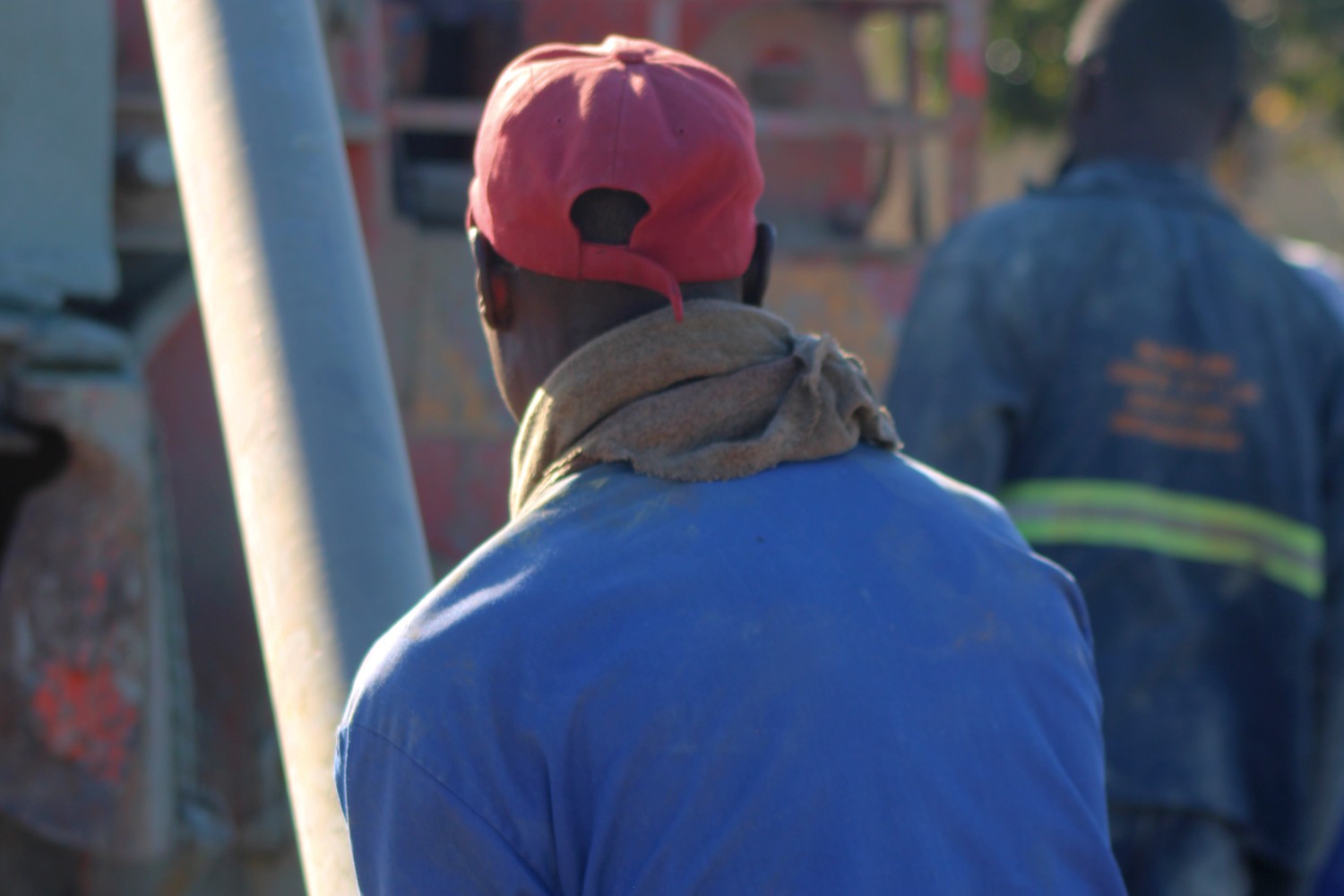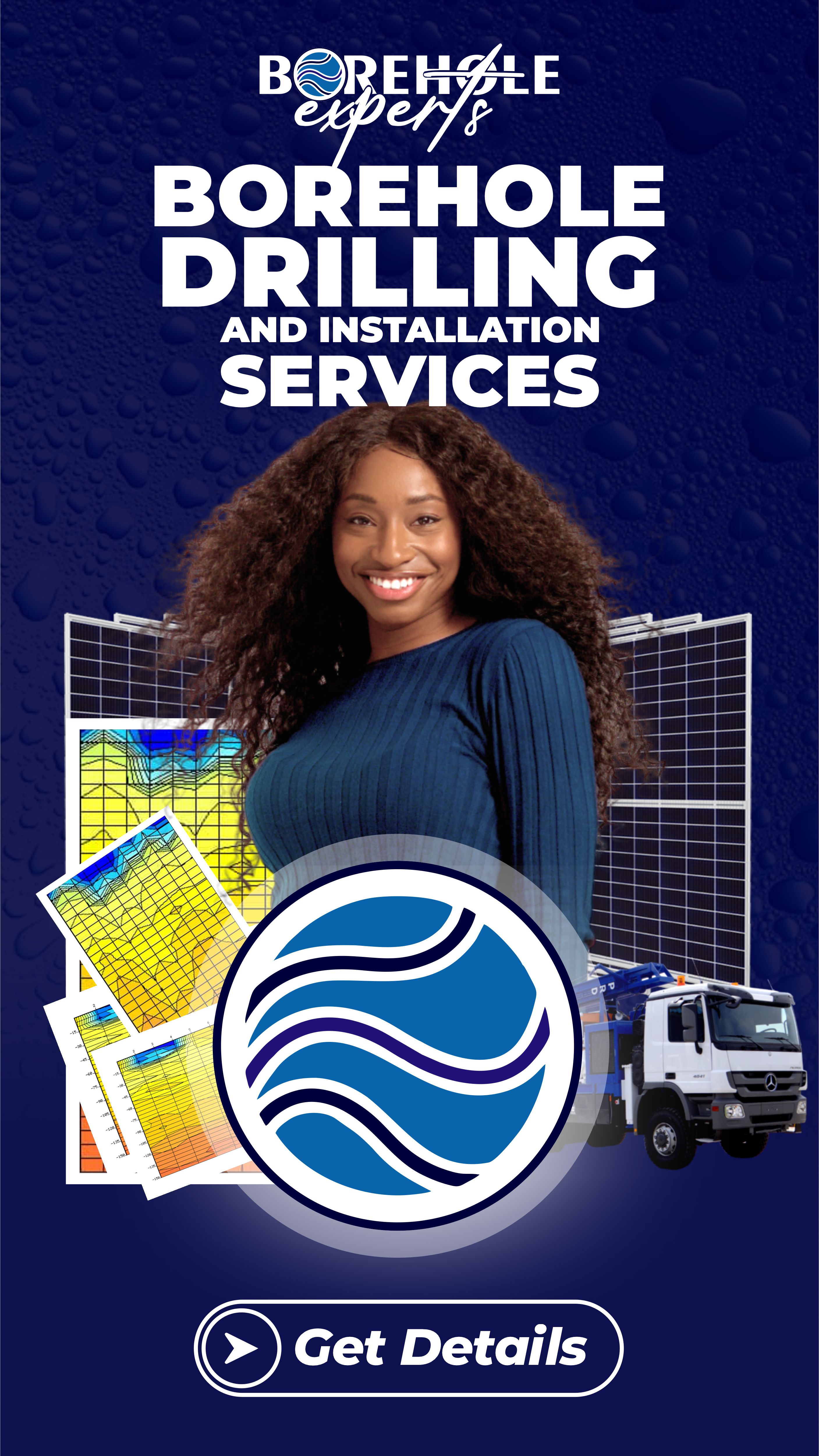Please feel free to leave a message on our WhatApp number or alternatively please call us and we will be able to help you straight away. If you would prefer, send us an email with your details and an outline of your enquiry and we will be pleased to come back to you. We respond to all enquiries usually within 24 hours, but guarantee within 48 hours.
Our Contact Numbers Are: +263 77 389 8979 or +263 71 918 7878
Recognition of groundwater’s contribution to water supply, including garden irrigation, crop irrigation, stock watering, potable and town supply, is ever increasing.
Groundwater (What Is Groundwater?) To understand the presence of groundwater, it is best to think of it in terms of its place in the water cycle. At some point in time, almost all groundwater was once rainfall that landed on the earth’s surface. Most of this rainfall then flowed down-gradient in small streams and rivers to eventually fill dams or reach the sea.
 |
| Borehole Siting in Zimbabwe - A Hydrogeologist’s Perspective on Borehole Drilling in Zimbabwe |
There Are Three Main Types of Aquifer, Namely:
 |
| Borehole Siting - A Hydrogeologist’s Perspective |
Likewise, the groundwater quality is also controlled by geology and rainfall. Host rock, with associated rock-water chemical interaction, typically determines the quality of the groundwater. Furthermore, in areas where evaporation far exceeds precipitation, groundwater tends to be more saline as the “freshening” effect of recharge is low.
Choosing The Correct Borehole Drilling Site: Considering that geology is what controls the potential yield and groundwater quality of an aquifer, this should be the starting point for any groundwater investigation. The selection of the drill target (both spatially and vertically), should therefore not be based on wishful thinking, left to chance or even geophysics (on its own) – but should be defined based on the geological conceptualisation of the area along with the relevant hydrogeological implications.
To understand the geological setting of an area, detailed geological maps are readily available which can be purchased from geological societies. These maps only provide an indication of what occurs at the earth’s surface in the area of interest and require interpretation from an Earth Scientist with a background in geology. Furthermore, the geologist must be able to conduct field surface mapping to correlate observations with what has been mapped in the area.
Where geological observation and 3d conceptualisation has been undertaken to identify the preferred target, geophysical techniques can be used to further investigate the sub-surface and delineate drill targets. Geophysical science is the study of how different materials of the earth (sands, clays, dense rocks, light rocks, etc.) interact with different signals (e.g. electrical, magnetic, seismic).
Other than geology and geophysical data obtained in the field, existing borehole information can be very helpful in selecting a drill target and anticipating results. Often a study area already has several boreholes, and all of them (be they high or low yielding) provide an extremely useful data set to aid the geologist in developing a conceptual hydrogeological model prior to defining a final drill position.
In Zimbabwe (and around the globe) boreholes are often drilled based on the suggestions of a water diviner. Water diviners claim to locate underground water based on the way a divining rod (often a wire or branch) moves in their hand as they walk around an area where they expect to find water. While this method may be near and dear to many groundwater users’ hearts, time, experience and controlled testing have shown that a scientific approach using geological mapping, geophysical surveys and sound geohydrological conceptual modelling is more likely to be successful.
 |
| Borehole Siting - A Hydrogeologist’s Perspective |
- What is the estimated depth of drilling?
- What is the borehole construction & how much casing is needed?
- What type of geology will be drilled through?
- What method will be used to drill to this depth, and can it go deeper if necessary?
- What is the expected cost to drill this borehole? (Important note – the answers to questions 3 and 4 can have a dramatic effect on the price!)
- Can the driller develop (i.e. flush with compressed air) the borehole after drilling and for how long?
These questions should be discussed prior to the establishment on site in consultation with the driller to plan what drilling method and materials are required and suitable to the geological conditions. During the drilling process, a sample of the geological formation should be taken every 1 meter and placed neatly in a sample garden.
- Drilling date
- Location (farm name, town etc)
- Drill site coordinates
- Borehole name
- Drilling operator name
- Final drilling depth
- Borehole construction
- Casing size & depth
- Geological log
- Water strike depths (indicate main water strike depth)
- Comment on general water quality
- Final blow yield.
If none of this detail is available of an already drilled borehole, some of the detail can be obtained by means of a down-hole camera survey. Camera logging provides useful information in terms of a borehole condition, construction (casing depth), fracture depths and groundwater level etc.
It is important that groundwater development is done scientifically and correctly, including the selection of the drilling position, the actual drilling, the yield testing, the infrastructure installation, monitoring and regulatory compliance. The correct understanding and approach to the borehole positioning and drilling will start your groundwater development process off on the right foot.
The close proximity of the drill site to a drainage channel was taken into account when sitting and drilling this borehole and the borehole was specifically designed to avoid any abstraction of surface water by the borehole.
Borehole Drilling in Zimbabwe is looking forward to your call or WhatsApp Message.
Please feel free to leave a message on our WhatApp number or alternatively please call us and we will be able to help you straight away. If you would prefer, send us an email with your details and an outline of your enquiry and we will be pleased to come back to you. We respond to all enquiries usually within 24 hours, but guarantee within 48 hours.
Our Contact Numbers Are: +263 77 389 8979 or +263 71 918 7878
The Cost or Prices For Borehole Drilling in Zimbabwe:
Please Note: Prices provided here act as a guide only, they may be different at the time of contacting the contractor. Whilst due care has been taken to ensure the authenticity of the above list, the clients are encouraged to practice due diligence and ask for references before they engage a specific contractor.
This website is owned by Borehole Drilling In Zimbabwe.We offer FREE expert advice to property owners who wish to or have boreholes drilled at their properties. We also work with pre-screened and trusted borehole drilling contractors who subscribe to quality workmanship and set standards of professional service.
Borehole Drilling In Zimbabweis meant to be a one-stop platform where clients can easily find professional borehole drilling and maintenance contractors. Of late, many property owners have been crying foul over poor and dishonesty service; from some contractors. This may be a case of lack of information on the part of the client or truly dishonest service on the part of the contractor.
This guide and our free expert advisory services will serve to solve both these problems.
Request A Quote:
If you have further questions, contact our friendly team today they will be more than happy to assist.Borehole Drilling in Zimbabwe Sales: +263 77 389 8979 and +263 71 961 3479.









.jpg)


